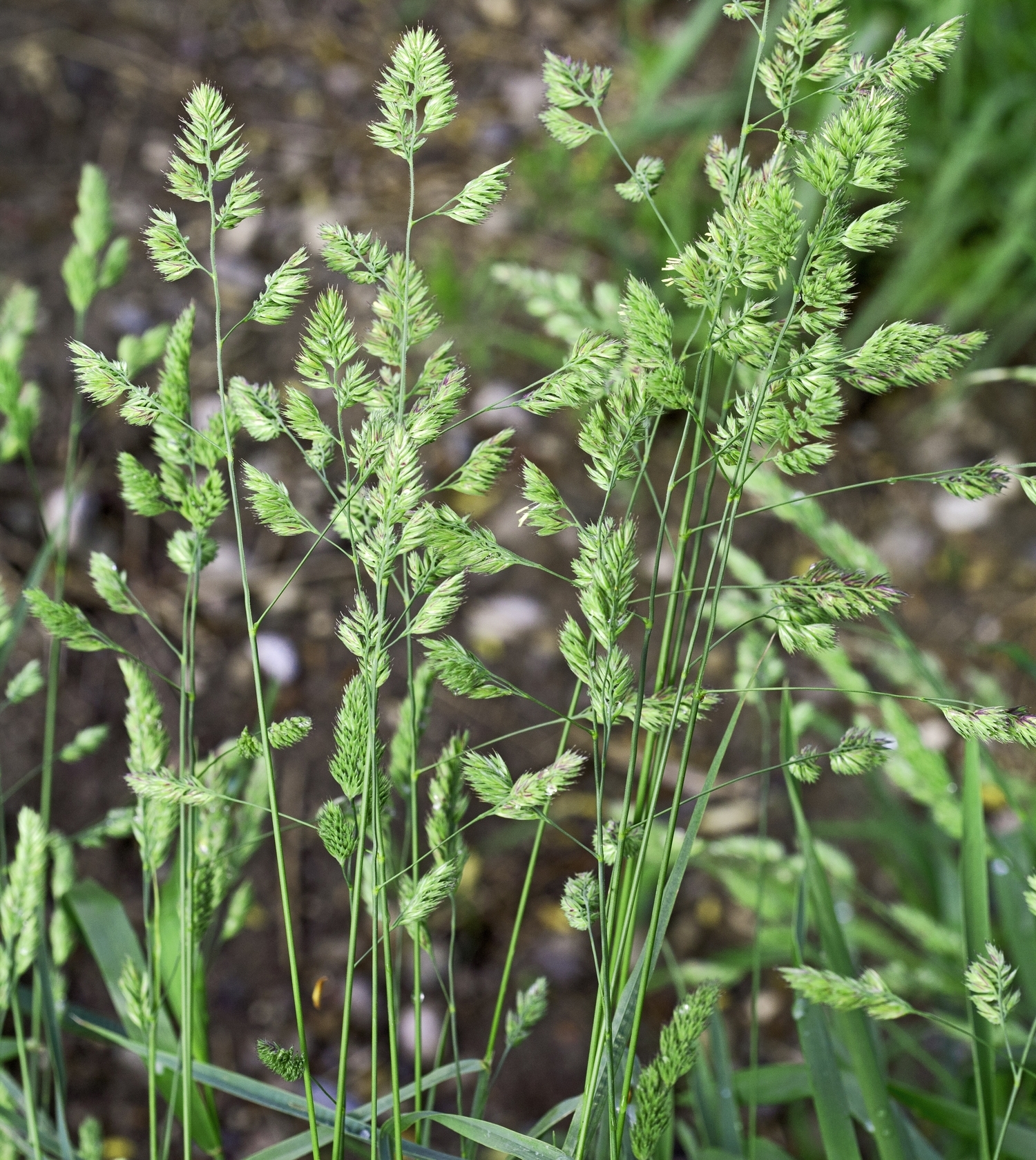Dactylis glomerata (Orchardgrass)
Cool season, long-lived, perennial bunchgrass found on a wide variety of sites, including acidic soils but not adapted to saline soils. Highly productive and palatable to livestock and wildlife. Predominantly used as a forage grass for pasture and hay production, though at times is used for erosion control on disturbed sites. Compatible in mixes with legumes and other forage grasses. Varieties listed below.
DISTRIBUTION / ADAPTATION
INFORMATION & ATTRIBUTES
Family: Poaceae
Duration: Perennial
Growth Habit: Graminoid
Native Status: Introduced
Season: Cool season
Growth Form: Bunchgrass
Mature Height: 36 in.
Annual Precipitation: ≥12 in.
Drought Tolerance: Medium
Shade Tolerance: Tolerant
Elevation:
Wetland Indicator Status: FACU
Fire Resistance: No
Fire Tolerance: Medium
SOIL ADAPTATION
Coarse Texture: Yes
Medium Texture: Yes
Fine Texture: Yes
Salinity Tolerance: Medium
CaCO3 Tolerance: Low
pH Range: 5.8-7.5
SEEDING NOTES
Seeds per Pound: 427,200
Seeding Rate: 4-10 PLS lbs/acre
Season: Spring/Fall
Days to Germination:
VARIETIES
Latar - Leafy, late-maturing variety which produces quality forage high in digestibility due to its low lignin content. Grows best on well drained, medium textured soils. (Released 1957)
Paiute - Dryland type often used as a forage crop for arid rangelands. Persists on sites with only 12 in. of annual precipitation, producing highly palatable feed. Begins growing early and remains green longer than many other varieties. (Released 1983)
Pennlate - High yielding with excellent disease resistance and great forage quality. Quick recovery after cutting and some drought tolerance. Somewhat winter hardy. Late maturing. (Released 1957)
Persist - Higher yields than most other varieties. Establishes easily and has excellent seedling vigor. Long-lived and persistent, withstanding years of grazing or haying and requiring less reseeding. Heat and drought tolerant; cold hardy.
Potomac - Vigorous growth, rust resistance, leafiness and superior persistence. Cold tolerant. Commonly seeded into irrigated pastures throughout the U.S. and Canada. Medium maturing. (Released 1954)
Profile - High yielding irrigated or dryland type. Selected for vigor, heat and drought tolerance, leafiness, winter hardiness and disease resistance. Deep rooted. Highly palatable. Early maturing.
Tekapo - Uniquely low set crown and dense prostrate growth habit allow it to be grazed to near ground level; well-suited for sheep and horse grazing. Produces dense stands which persist even under hard, continuous grazing. Winter hardy. Medium maturing.
Warrior II - Deep set crowns allow it to tolerate intensive rotational grazing if managed properly. Will tolerate modest continuous grazing without weakening stands. Soft leaved, disease resistant, and tolerant of summer heat.


